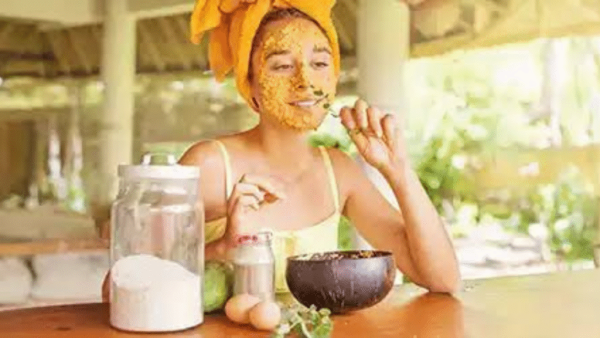Harmful Skincare ingredients: Skin experts warns that some common kitchen materials can destroy the natural protection of the skin, causing irritation, dryness, or other problems.
Harmful Skincare Ingredients: In the trend of DIY Skincare, people are using kitchen materials like lemon, sugar and baking soda on the face, but they can cause serious damage to the skin. Skin experts warns that some common kitchen materials can destroy the natural protection of the skin, causing irritation, dryness, or other problems.
As the popularity of DIY Skincare increases, people are using the kitchen material available in the house for skin care, assuming that they are natural and safe. However, skin experts warns that not all household content are suitable for the face. Some ingredients can spoil the pH balance of the skin, cause irritation or damage for a long time.
Do not put these five things of kitchen on the face
- Lemon juice: Lemon juice is often used to brighten the skin because it contains high quantity of citric acid. However, its low pH can be very rigid for the skin, which snatches natural oils and causes irritation, especially when exposed to sunlight. This can cause black spots or chemical irritation, especially on sensitive skin. Instead of applying it directly, use skincare products containing citric acid that are prepared in safe amounts.
- Sugar: Chinese are often used for exfoliation as DIY scrub, but its rough texture can cause microscopic wounds in the skin. These small wounds can cause redness, irritation or even infection if not treated properly. Skin experts recommend using light exfolnts specially designed for facial skin so that the protective layer of the skin does not harm.
- Baking soda: Baking soda is a popular DIY remedy, often used to fight acne or shine the skin. However, its high alkalinity (about 9 pH) spoils the natural pH (about 4.5.5) of the skin, weakening the protective layer. This can increase dryness, sensitivity and skin weakness towards bacteria. Instead, products with salicylic acid or light chemical exfolnts are safe options.
- Toothpaste: Many people apply toothpaste on acne, not for acne, assuming that it dries them. However, elements like thwl in toothpaste can temporarily reduce inflammation, but it can excessive drying the skin and can cause irritation, redness or peeling. It has not been prepared for the face and can close the pores, causing pimples to deteriorate. Instead, use spot treatment with benzoyal peroxide or tea tree oil.
- Raw Garlic: Garlic is sometimes used as a home remedy for acne due to its antibacterial properties. However, applying raw garlic directly on the skin can cause severe irritation, redness or even irritation, especially on sensitive skin. Its powerful compounds can be very strong for direct use. Consult skin experts for antibacterial treatment instead of raw garlic.
